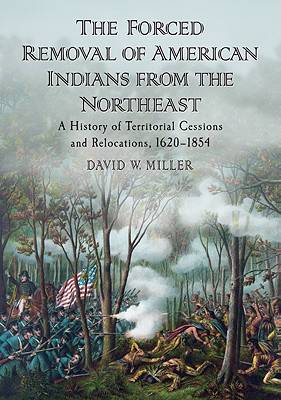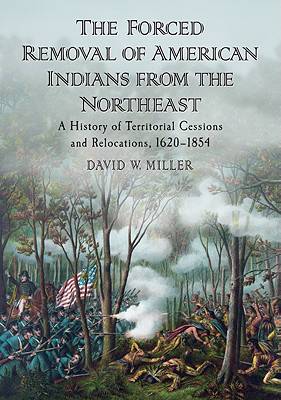
- Retrait gratuit dans votre magasin Club
- 7.000.000 titres dans notre catalogue
- Payer en toute sécurité
- Toujours un magasin près de chez vous
- Retrait gratuit dans votre magasin Club
- 7.000.0000 titres dans notre catalogue
- Payer en toute sécurité
- Toujours un magasin près de chez vous
The Forced Removal of American Indians from the Northeast
A History of Territorial Cessions and Relocations, 1620-1854
David W MillerDescription
Between the settlement of the Pilgrims in New England in 1620 and the 1850s, native Indians were forced to move west of the Mississippi River. In the process they surrendered, mainly reluctantly, their claims to 412,000 square miles of land east of the Mississippi River and north of the Ohio River and the Mason-Dixon Line. Relying on the words of those involved and pertinent documents, this study gives insight into the thoughts and attitudes of those demanding the movement and the efforts of the Indians to remain. The changes in governmental policies that came about as a result of the Revolutionary War are noted as is the incremental weakening of the Indians as the avalanche of settlers moved west. Attention is given to the policies of George Washington and his secretary of war, Henry Knox, in the early years of the United States.
Spécifications
Parties prenantes
- Auteur(s) :
- Editeur:
Contenu
- Nombre de pages :
- 223
- Langue:
- Anglais
Caractéristiques
- EAN:
- 9780786464968
- Date de parution :
- 29-09-11
- Format:
- Livre broché
- Format numérique:
- Trade paperback (VS)
- Dimensions :
- 175 mm x 249 mm
- Poids :
- 408 g

Les avis
Nous publions uniquement les avis qui respectent les conditions requises. Consultez nos conditions pour les avis.






